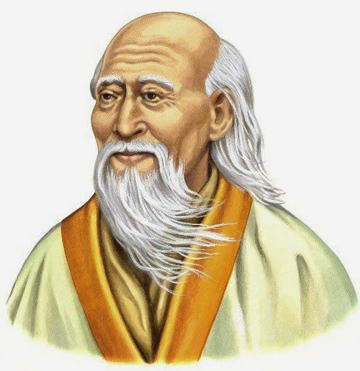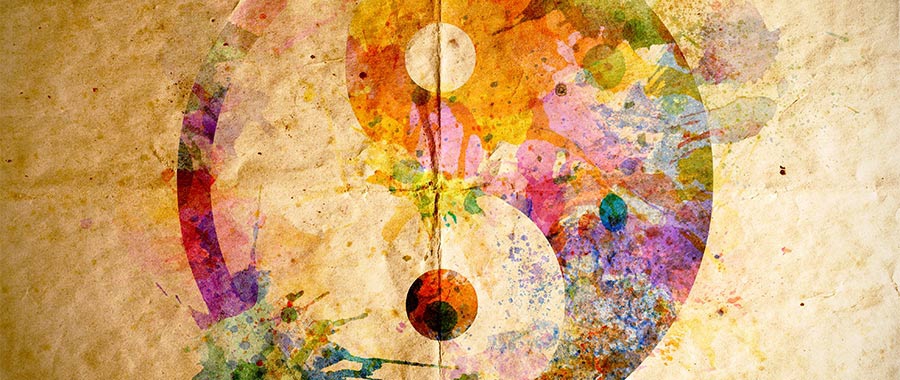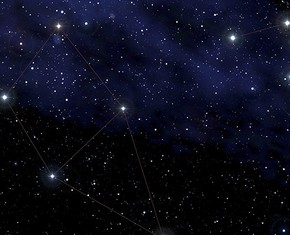The views expressed in our content reflect individual perspectives and do not represent the authoritative views of the Baha'i Faith.
The uniquely Chinese concept of yin and yang reflects a basic principle of nature—opposites bound together as a mutual whole. Keeping them in balance makes things work in harmony.
The Baha’i teachings also reflect the idea of yin and yang, saying that:
The world in the past has been ruled by force, and man has dominated over women by reason of his more forceful and aggressive qualities both of body and mind. But the balance is already shifting—force is losing its weight and mental alertness, intuition, and the spiritual qualities of love and service, in which woman is strong, are gaining ascendancy. Hence the new age will be an age, less masculine, and more permeated with the feminine ideals—or, to speak more exactly, will be an age in which the masculine and feminine elements of civilization will be more evenly balanced. – Abdu’l-Baha, quoted by J.E. Esselmont in Baha’u’llah and the New Era, p. 156.
If an entire age can be characterized by yin or yang, then it stands to reason that the movement of life needs that balance too:
A leader can act as warrior and as a healer. As a warrior, the leader acts with power and decision. That is the Yang, or masculine aspect of leadership. But most of the time the leader acts as a healer, in an open, receptive and nourishing state. That is the feminine, or Yin aspect of leadership. This mixture of doing and being, of warrior and healer, is both productive and potent. – John Heider, The Tao of Leadership – Lao Tzu’s Tao Te Ching Adapted for a New Age.
But a third aspect of leadership also exists, called in Chinese “Dao” or “Tao.” Periodically, the leader withdraws from the group and returns to silence, returns to God. That cycle—being, doing, being, then Dao—means that the leader periodically has the opportunity to empty the self of what has happened and restore the spirit:
All beings carry Yin and embrace Yang, they achieve harmony by combining these forces. – Laozi, Dao De Ching, Chapter 42.
A Master knows his masculine power, but most of the time he uses his feminine power, the people come to him because the potent influence of power makes the people to be attracted to him just like the stream collects water.
A Master knows that fame follows from the light he sheds, but he instead lives as an obscured being, his obscurity is a demonstration of the obscurity of the natural law itself.
A Master knows his glory, but he instead lives as a lowly being, the master contains all beings because of his openness and receptivity just like a valley can contain everything. – Ibid., Chapter 28.

Laozi
These virtues described by Laozi can help us understand that both masculine and feminine power come from a divine source. If we can learn to keep them in balance in our spiritual practice, that balanced power can really change the world.
What are the virtues in masculine and feminine power? Traditionally, for masculine (Yang), they include: direction, logic, focus, integrity, stability, independence, discipline, confidence, force, strength, purpose, and control. For feminine (Yin), they include: receptivity, empathy, radiance, flow, sensuality, nurturing, affection, sharing, tenderness, patience, and love.
Of course, we all have these potential spiritual qualities and attributes within us—they are not limited to just men or women. The human spirit has no gender, according to the Baha’i teachings:
… in the sight of Baha, women are accounted the same as men, and God hath created all humankind in His own image, and after His own likeness. That is, men and women alike are the revealers of His names and attributes, and from the spiritual viewpoint there is no difference between them. Whosoever draweth nearer to God, that one is the most favoured, whether man or woman. – Abdu’l-Baha, Selections from the Writings of Abdu’l-Baha, pp. 79-80.
Know thou that the distinction between male and female is an exigency of the physical world and hath no connection with the spirit; for the spirit and the world of the spirit are sanctified above such exigencies, and wholly beyond the reach of such changes as befall the physical body in the contingent world. – Abdu’l-Baha, from a tablet translated from the Arabic.
As the Dao De Ching tells us, the yin and yang qualities need to balance in order to achieve harmony inside and outside. The masculine power shows in our action and doing, while the feminine power shows in who we are and how we live. They represent the dual aspects of our spiritual lives, doing and being, productive and potent, logic and love.
Beyond yin and yang as the movement of our individual lives, that duality also forms the process of civilization. We can’t achieve true human progress just by doing and without discovering and enhancing our feminine power. The feminine power nourishes our spiritual life and gives the human temple the life of the spirit. Look at the world we live in now, which seems more dominated by the masculine power. We know, though, that a truly divine civilization can’t progress without the infusion of the spirit. Nourishing the life of the spirit develops our feminine power, so the two aspects can be equally balanced.
Learning to keep the balance of yin and yang is part of the process of our spiritual growth, to get back to our natural inner being. With it, we can look at every challenge in our life from a different perspective. As we do so, we learn more about ourselves, and understand which masculine virtues or which feminine virtues need to be strengthened.
When something happens or something needs to be changed, we act with confidence and focus, and nurture with the tenderness of love and patience. With both feminine—yin—and masculine—yang—power in our movement, we keep the circle rolling. This rolling motion turns the wheel of Tai Chi. Both feminine and masculine virtues are the power (force) and energy (penetrating flow) of the spirit. From Laozi we know humility, peace and love are also feminine powers, and that conquest is a masculine power. Instead of the excessive drive for conquest that exists in the world right now, we can all, male and female, apply the more feminine qualities to our spiritual practice, subduing our own egos and acting with nurturing love and patience to restore the balance of Creation.
You May Also Like
Comments

















― Llewellyn Vaughan-Lee, The Return of the Feminine and the World Soul